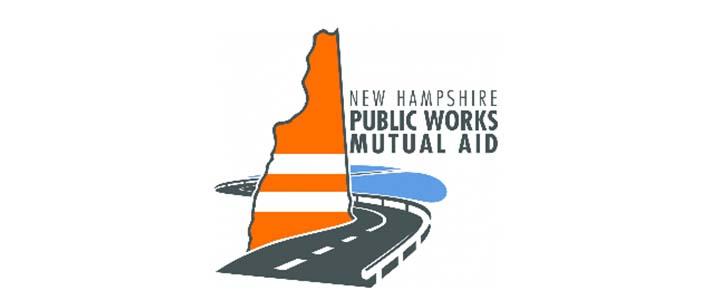
Accessing Mutual Aid During a Water System Emergency
During a water system emergency, it can make a big difference if your utility can receive assistance from a neighboring utility.
Mutual aid programs exist throughout the nation as part of a Water and Wastewater Agency Response Network (WARN). A WARN is a formalized network of utilities helping other utilities during emergencies or disasters, and is governed by a mutual aid agreement. There are 50 WARNs in the United States and two in Canada.
New Hampshire’s WARN is the New Hampshire Public Works Mutual Aid program (NHPWMA), a network of utilities that assist one another during emergencies through partnering agreements, and a protocol for requesting and receiving aid.
Disasters are seldom limited to a single community. That is why NHPWMA allows communities from all over the state to become members, respond to emergency events and support communities most affected. The majority of members are municipalities, but any water system, regardless of size, may become a member and reap the benefits of this program. Benefits of the NHPWMA program include:
- Prompt and effective response.
- Rapid and orderly rehabilitation of infrastructure.
- Sharing of specialized supplies, equipment and personnel.
- Reduced vulnerability of participating communities.
An added benefit of NHPWMA membership is that mutual aid services do not require a disaster declaration, so communities can request aid at almost any time, even for small-scale events.
If a federal disaster is declared, being a member of NHPWMA can facilitate FEMA reimbursement.
Joining NHPWMA is easy, and can be done in three steps:
- Visit the NHPWMA Mutual Aid site, click Joining Mutual Aid and complete the agreement.
- Mail a $25 check, payable to NH Public Works Mutual Aid, and the signed agreement to: New Hampshire Public Works Mutual Aid c/o New Hampshire Municipal Association, 25 Triangle Park Drive, Concord, NH 03301.
- Complete the NHPWMA Member Contact Form and send to t2.center@unh.edu or mail to Technology Transfer Center, 33 Academic Way, Durham, NH 03824.
Learn how to access mutual aid services by visiting the Providing Mutual Aid or Requesting Mutual Aid pages. For more tools and resources, please visit the Mutual Aid Members, Links and Other Resources page.
Emergency preparedness and mitigation are just as important as the response. For that reason, it’s important to plan ahead of time by establishing a relationship with your local Emergency Management Director (EMD) and contact them during an emergency for assistance. Additionally, make sure your community water system is up-to-date with contact information and notification procedures, making it easy to follow step-by-step instructions during an emergency.
For more information on mutual aid, please visit the FAQ on Water and Wastewater Mutual Aid and Assistance or contact Stephanie Nistico at stephanie.nistico@des.nh.gov or (603) 271-0867.




